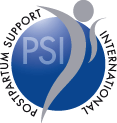 |
|
Additional Resources
LinksHere are a few links which will help you learn more about child bearing practices in traditional Japanese culture. Clearly, there is quite a difference in the way different world cultures treat pregnancy and in the way they greet new babies into the world. Most of these sites make it clear when there is a difference between the traditional Japanese style and common practices in the United States. It is important to be aware of the different expectations and beliefs you may run into when dealing with the health care system and your community in general. Be your own cultural expert! This site hosts forums: This site hosts forums: Japan Guide. Com Traditional Japanese Practices and Beliefs in Hawaii http://www.hawcc.hawaii.edu/nursing/tradjapan2.htm Traditional Health Beliefs: Japanese: Preganancy & Childbirth www.hawcc.hawaii.edu/nursing/RNJapanese06.htm This article may be helpful in understanding the type of difficulties that American doctors may have in treating Asian clients:
Cultural Competence: Caring for Chinese, Japanese, and Korean patients Some of the best information regarding what to expect when giving birth in the U.S. can be found through the stories of people who have all ready been through it. Here are some links to the experiences of other Japanese couples who have given birth the in United States. Japanese Couples' Childbirth Experiences in Michigan: Implications for Care by SeonAe Yeo, RN, PhD, Michael Fetters, MD, MPH, MA, and Yukio Maeda, MA Postnatal depression in Japanese mothers and the reconsideration of 'Satogaeri bunben'
ResourcesIf this is a life threatening emergency and you feel like harming yourself, your baby or someone else, please dial 911 or go to the nearest hospital emergency room. National Suicide Prevention Hotline……………………1-800-SUICIDE Children of Hope Safe Haven Program....………………1-877-796-4673 National Child Abuse Hotline……………………………1-800-422-2253 Here are other helpful resources: Postpartum Support International Postpartum Health Alliance Postpartum Support Page
For Postpartum dads:
How Do You Know You Have It?Postpartum depression is the most common complication of childbearing. The 10-question Edinburgh Postnatal Depression Scale (EPDS) is a valuable and efficient way of identifying patients at risk for “perinatal” depression. The EPDS is easy to administer and has proven to be an effective screening tool.
|
|





